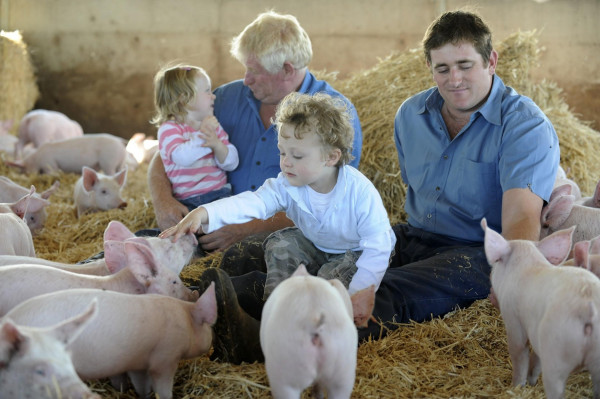PIG industry representatives say the threats activists pose to farmers and their families have overshadowed a parliamentary inquiry into pig welfare.
The State Parliament’s Legislative Council Economy and Infrastructure Committee report was tabled last week with recommendations for research into alternatives to the use of carbon dioxide stunning during slaughter and enforced bans of sow stalls and farrowing crates, among others.
RSPCA Victoria commended the inquiry for including recommendations put forward by the organisation with the potential to improve pig welfare in Victoria.
Piggery owner Tim Kingma gave a submission to the inquiry about science-led developments the industry had initiated, as well as the threat that he and other farmers were under from animal-welfare activists.
“One side talked about science and what the industry did, and the other presented an ideology, which made it very clear that they would keep going until there was no livestock farming in Australia,” Mr Kingma said.
Mr Kingma said the inquiry revealed that the activists would not stop direct action until commercial meat production in Australia ended, which prevented farmers and animal welfare activists from working together for the progression of research into the matter.
He said the alleged farm incursions became a particular issue when they did not adhere to strict biosecurity measures in place to prevent farm contamination and the spread of disease among pig herds.
“Animal-welfare activists don’t get biosecurity, and I’ve spoken to producers who have had break-ins that have said they’ve had an outbreak of diseases they’ve never seen before,” Mr Kingma said.
Australian Pork Limited chief executive Margo Andrae told The Guardian that pig farms were audited on the strict measures and faced corrective action if these were not followed.
“Pigs are highly susceptible to disease,” Ms Andrae said. “By the break-ins they breach all the biosecurity, which is actually illegal, and is something that we would have loved to have seen stricter rules and guidelines around.”
Despite APL’s fundamental opposition to the inquiry from the outset, Ms Andrae said it was committed to taking the inquiry seriously.
“We wanted to demonstrate the care that our industry takes of our animals, and we wanted to demonstrate how strict our processes and our independent auditing are … that the committee could have confidence in us, we spend millions of dollars on science and research, and that everything we do is about continuous improvement.
“We were disappointed with what came out with the recommendations, and some of the recommendations were things that the industry was already doing or has in place or are improvements.
“It was a very unfair playing field.”
APL and farmers who made submissions were concerned about drawing attention from activists and the high potential for break-ins on family farms were a prohibitive factor to farmers giving testimony.
“Activists revealed they have broken into over 109 farms, they have illegally filmed our farmers and their families, and no one is holding them to account.
“One of the worries of our farmers coming up in this inquiry was that they would be targeted by this behaviour of breaking in and they were. It’s heartbreaking.
“We asked them to step up and represent the industry and put forward their stories, they highlighted that they were worried, and the outcome was this,” Ms Andrae said.
















